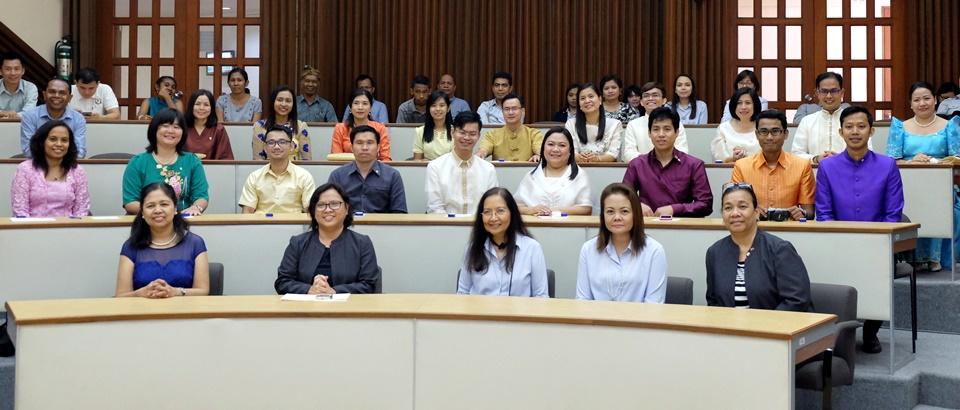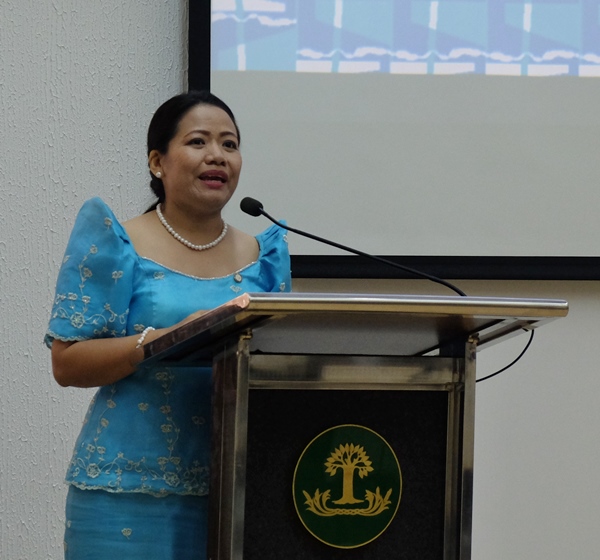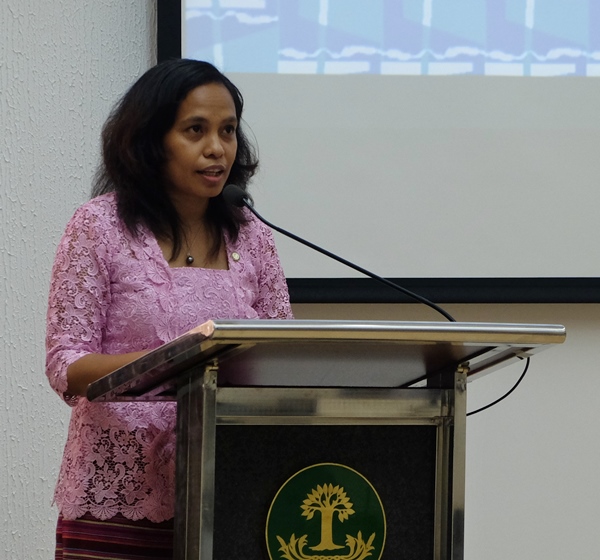Dr. Gil C. Saguiguit, Jr., SEARCA Director, exhorted the graduates to put what they studied to good use. "No matter where you find yourself after graduation, we hope you continue to pursue this noble objective of making a difference in your country and the region as a whole," Saguiguit emphasized. In her response, Ms. Veneranda Magpantay, PhD Genetics graduate, enjoined her fellow scholars to adhere to the UP mantra to Serve the People and more importantly, to serve with compassion.
Ms. Magpantay also spoke of the many advantages of being a SEARCA scholar including the timely release of financial benefits, the annual teambuilding that promotes bonding with other scholars, the opportunity to go on mobility overseas, and the library's conducive atmosphere to studying, among others. Ms. Ana Noronha, MS Animal Science graduate who hails from Timor Leste, spoke about her initial apprehensions when she received the scholarship. Hearing that studying at UPLB is quite difficult, she was worried that she may not finish within the 2-year scholarship duration and had to pay her own way after that. But she was relieved because SEARCA provided all the support to ensure they finish on time – including English classes and other trainings.
Dr. Josefina T. Dizon, President of the Regional SEARCA Alumni Association and also OIC-Dean of the UPLB College of Public Affairs, congratulated the graduates and welcomed them to the ranks of SEARCA Scholarship Alumni.
Of the 35 graduates, 20 obtained PhD degrees, while the rest earned Master's degrees. In terms of country of origin, there are five (5) from Cambodia; two (2) from Indonesia; four (4) from Lao PDR; eight (8) from Myanmar; seven (7) from the Philippines; four (4) from Thailand; two (2) from Timor Leste; and three (3) from Vietnam. Twenty-one (21) of the scholars were fully funded by SEARCA through its own resources, while the rest were jointly funded with the Center's partners, namely, the German Academic Exchange Service (DAAD), Nagoya University, Tokyo University of Agriculture, the International Development Research Centre (IDRC) of Canada, and the Philippine Carabao Center (PCC).
Since 1968, SEARCA has been awarding scholarships to deserving Southeast Asian nationals to fulfill its mandate of building the capacities of individuals and institutions in the region for agricultural and rural development. These graduates join the ranks of more than 1,400 SEARCA scholarship alumni and are expected to extend SEARCA's reach in the region.


